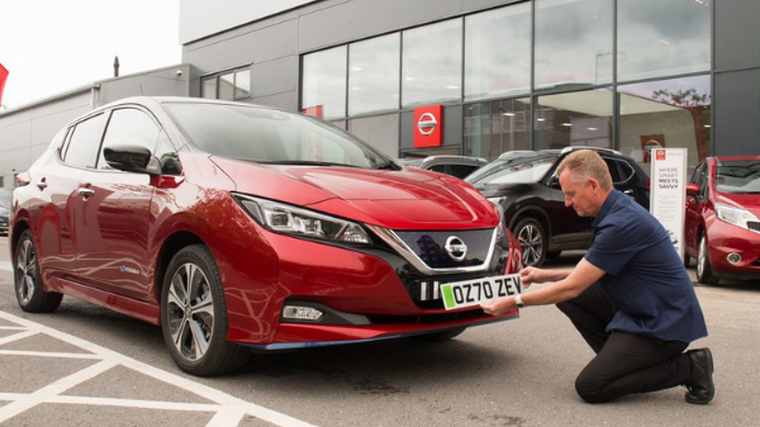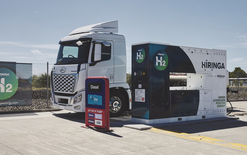Electric sales boom in UK

The coronavirus pandemic pushed UK car sales in 2020 down to their lowest level since 1992.
It was the biggest annual slump since World War II despite surging registrations of electric vehicles (EVs).
New-car sales fell by 29 per cent during the year to about 1.63 million, according to preliminary figures from the Society of Motor Manufacturers and Traders (SMMT).
The main cause of the decline was the first Covid-19 lockdown, which was imposed in March.
That is a crucial month when sales are usually helped by a change in plates.
Showrooms in England were closed from late March until June, which forced marques to quickly move to online sales and introduce social distancing in factories.
“It was a very difficult year,” says Mike Hawes, chief executive of the SMMT. “These are unprecedented levels of disruption, which have challenged the industry continuously.”
Registrations peaked at 2.7m as recently as 2016, but last year was the first time since 2011 that total registrations dipped under two million.
Hawes adds the latest lockdown across England, which was announced on January 4, will make it difficult for business to get back above that level again this year.
While there were steep drops in registrations of petrol and diesel vehicles in the UK during 2020, sales of pure EVs – such as Nissan’s Leaf, pictured – nearly trebled to just under 110,000 for a market share of about 6.6 per cent.
With non-petrol hybrids added in, the market share of all plug-in cars climbed above 10 per cent for the first time.
The automotive industry in the UK is rushing to accelerate the take-up of EVs after the government announced in November it would ban the sale of new internal combustion-engine cars there by 2030.
Hawes says: “We’ve got to go from one-in-10 plug-ins to 10 out of 10 in nine years. That’s the challenge we face.”
During 2020, factories in the UK were also threatened by talks with the EU, with a free-trade agreement only reached on December 24.
The deal means the industry has avoided tariffs or quotas on cross-Channel trade for most vehicles and parts.
However, marques will have to adjust to significant paperwork on rules of origin, with procuring battery technology from the EU or UK a specific focus.
Hawes says the deal is a big relief for manufacturers despite not matching the benefits of frictionless access to the EU’s single market.
That said, the British automotive industry is watching closely for disruption of parts imports in coming weeks amid new border checks.
Marques have already faced costly disruption related to import troubles, and Honda said on January 5 it was halting output at its Swindon plant for two days due to delays.
The company, whose factory is due to close permanently in July, blames “global supply issues”.
Honda, Toyota and Jaguar Land Rover were all forced to suspend output before Christmas with global supply chain problems compounded by Brexit stockpiling.





